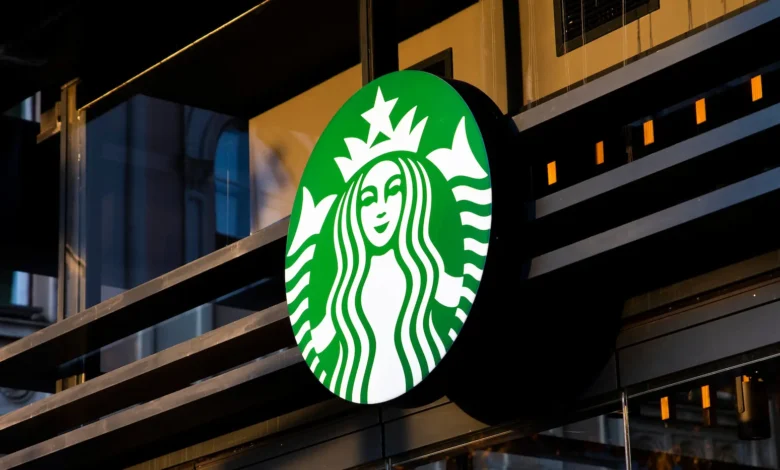Can leadership programmes solve hospitality’s recruitment woes?
As hospitality battles a deepening labour shortage, Starbucks is investing heavily in fast-tracking future leaders. Its Accelerated Leadership Programme promises to turn raw potential into store managers in just 13 months. Could schemes like this be the key to making hospitality an attractive and sustainable career?

Register to get 1 free article
Reveal the article below by registering for our email newsletter.
Want unlimited access? View Plans
Already have an account? Sign in
The UK hospitality sector is facing one of its most significant challenges in years. According to UKHospitality, the industry has shed 69,000 jobs since October 2024, a sharp reversal from the previous year when 18,000 roles were created in the same period. Job losses in the sector have been three times higher than across the wider economy since the last Budget, a sobering statistic for an industry that has long been a key employer.
In fact, UKH chair Kate Nicholls has pointed out that in the years following the financial crisis, the industry has created one in five net new jobs to employ a total 3.5 million people in the present day. “The government needs sectors like hospitality to create jobs and meet their ambition to get more people back into work,” Nicholls stresses. “We have a proven track record of being able to deliver those jobs in every part of the country and for people from all backgrounds.”
Her warning continued, calling the change to National Insurance contributions “socially regressive” as it had a disproportionate effect on entry level jobs. “Without a change of tack from the government we could be looking at over 150,000 fewer workers in hospitality, when we should be bringing people into the jobs market,” Nicholls adds. “The economy needs jobs. Hospitality creates them. But we are being taxed out.”
Participants will gain hands-on experience, leadership and management training, and a Level 3 apprenticeship qualification from the Chartered Management Institute (CMI), equivalent to an A Level.
Against this challenging backdrop, businesses are stepping up with creative solutions to attract and retain talent. One such example is Starbucks UK’s Accelerated Leadership Programme, which aims to fast-track young people into management roles. But can initiatives like this really move the needle on the industry’s recruitment and retention crisis?
Earlier this month on 7 July, during Youth Employment Week, Starbucks UK opened applications for the second round of its Accelerated Leadership Programme. The scheme is designed to fast-track more than 20 young people from entry-level positions to store manager roles in just 13 months. For context, that journey would typically take at least three years in a traditional pathway.
Roles are available in key cities including London, Cardiff, Edinburgh and Glasgow. Participants will gain hands-on experience, leadership and management training, and a Level 3 apprenticeship qualification from the Chartered Management Institute (CMI), equivalent to an A Level. The programme is delivered in partnership with training provider Corndel.
Starbucks UK’s general manager, Alex Rayner, sums up the ethos of the initiative by saying, “Our success starts and ends with our Green Apron Partners and whether you’re just leaving school or exploring a fresh start, Starbucks is a place where you can be yourself, work with great people, craft your path and spread joy every day through the power of coffee.”
The company is investing £5k in training for each participant, bringing the total investment for this cohort to £100k. Across both cohorts so far, that figure exceeds £170k. Importantly, the programme does not require prior hospitality experience and there is no obligation for participants to remain with Starbucks or repay training costs after completion.
This initiative sits alongside Starbucks UK’s year-round apprenticeship programme, which offers 150 roles ranging from barista to degree-level positions. Together, these efforts form part of a broader industry push to make itself a viable and appealing career choice.
The application process is open to everyone through the Starbucks learner hub and involves two interviews: one at an assessment centre and another in-store.
Starbucks UK’s talent acquisition manager, Shona Woodhead, explains that the company’s motivation behind the Accelerated Leadership Programme was to “ignite the potential of young people and its talented Green Apron Partners”, and support the next generation of leaders.
“At its heart, the initiative aims to empower emerging talent with the tools, experience, and confidence to thrive in leadership roles, whether their future is with us or elsewhere,” she adds.
Since launching the first cohort, Starbucks has broadened its approach. “We’ve opened the doors to applicants from all walks of life, bringing fresh energy into our stores while continuing to champion our incredible Green Apron Partners,” says Woodhead.
When it comes to selecting participants, Starbucks is intentionally inclusive. Woodhead explains: “We’re not checking for hospitality experience or ticking boxes for degrees. We’re on the lookout for raw potential – people who are passionate, driven, and ready to roll up their sleeves.”
The application process is open to everyone through the Starbucks learner hub and involves two interviews: one at an assessment centre and another in-store. “We believe leadership doesn’t have one look, and we’re building a programme that reflects that,” Woodhead adds.
Although the second cohort has only just opened for applications, Starbucks reports encouraging signs from its first group. “The programme is still underway, but we’ve already seen some really exciting progress from our first cohort,” says Woodhead.
Participants are developing critical skills in leadership, strategy, and operations. Feedback so far has been overwhelmingly positive. “Take Reina for example, one of our partners in the first cohort,” Woodhead shares. “She explained how the programme is helping her grow as a manager and learn how to boost her team’s wellbeing. That kind of development is exactly what we set out to achieve: real-life leadership skills with real-world impact.”
Support does not stop at the classroom. According to Woodhead, Starbucks UK is focusing on making this programme the best experience for those taking part. One way it does this is by keeping each cohort deliberately small so that Starbucks can give each participant “ personalised, one-on-one support from start to finish”.
Starbucks is not alone in recognising the need for structured career development in hospitality. Several major players have introduced their own schemes to accelerate progression and retain talent.
While the ultimate goal is to prepare participants for store manager roles at Starbucks, there is no obligation to stay. As Woodhead puts it, “We’re laser-focused on giving them every chance to succeed, whether this is with us or beyond.”
Starbucks’ investment in youth training comes at a time when the hospitality industry is under intense pressure, as highlighted by UKHospitality. In this climate, employer-led initiatives like Starbucks’ Accelerated Leadership Programme could play a critical role in attracting talent, offering structured career paths, and changing perceptions of hospitality as a dead-end job.
Starbucks is not alone in recognising the need for structured career development in hospitality. Several major players have introduced their own schemes to accelerate progression and retain talent.
McDonald’s Management Degree Apprenticeship is one such example. This three-year programme combines on-the-job training with a business degree, enabling participants to earn while they learn. Graduates leave with a full degree and several years of management experience under their belt.
Meanwhile, Pret A Manger’s Rising Stars Programme focuses on internal progression, identifying employees with leadership potential and providing tailored training to help them move into management roles. The programme also includes mentoring and wellbeing support.
Whitbread also has its own scheme – the Leadership Development Programme – which offers structured pathways into leadership across its hotel and restaurant brands, with a strong emphasis on internal mobility and skills development.
The Accelerated Leadership Programme is just one component of Starbucks’ broader talent strategy, which in 2025 includes 150 apprenticeship opportunities across various levels.
Where Starbucks differs is in the speed of progression and the lack of post-programme obligation. The 13-month timeline is significantly shorter than McDonald’s three-year pathway and is appealing to ambitious candidates looking for rapid advancement. Additionally, Starbucks’ willingness to invest £5k per participant without requiring them to stay afterward signals confidence in the long-term reputational benefits of the schemes.
Starbucks has no plans to slow down. “Absolutely,” Woodhead said when asked about future expansion. “We’re planning more cohorts and will continue to evolve the programme based on what we’ve learned and what our stores need. The aim is to keep making it better and more impactful, with each new wave of future leaders.”
The Accelerated Leadership Programme is just one component of Starbucks’ broader talent strategy, which in 2025 includes 150 apprenticeship opportunities across various levels. This layered approach is designed to create clear, structured career paths for individuals entering the industry, regardless of prior experience.
While it is too early to measure the long-term impact of Starbucks’ Accelerated Leadership Programme, its design reflects what many argue the industry desperately needs: structured pathways, strong employer investment, and a commitment to developing future leaders.
Kate Nicholls words also ring true: hospitality can and does create jobs when the right conditions are in place. Initiatives like Starbucks’ programme will not single-handedly solve the sector’s labour crisis, but they may help shift perceptions and demonstrate that hospitality can offer genuine career progression.







